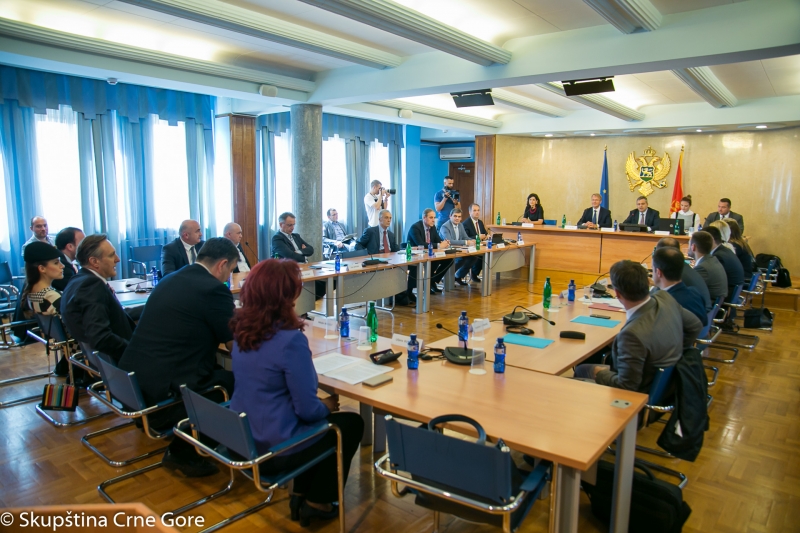At today’s 30th meeting of the Committee, H.E. Mr Aivo Orav, Head of the EU Delegation to Montenegro, presented key findings of the EC’s Montenegro 2019 Report to the members of the Committee.
Mr Orav spoke about the assessment of the situation and the achieved level of Montenegro’s readiness for the EU membership, especially in the part relating to political criteria and the rule of law. Mr Orav referred to the following areas: election legislation, parliamentary work, parliamentary oversight and, in particular, political dialogue, the judicial system, results in the fight against corruption and organised crime, fundamental rights, media freedom and public administration reform. He stressed that Montenegro itself is responsible for reform processes in the country and fulfilling the criteria for membership in the Union, while it can count on the EU with regard to the funding and concrete recommendations for further reforms in key areas.
In this regard, there are areas where some progress has been made, areas where there has been no progress in the reporting period, but also areas where concrete results have been achieved as a consequence of a significant work, primarily on the harmonisation of domestic legislation with the EU acquis.
Aside from the Committee members, the meeting was attended by presidents or representatives of majority of parliamentary parties, who gave their comments on the EC’s Report, some of the specific questions for Ambassador Orav related to the reform of electoral legislation and the impact of the results achieved in the key areas in Chapters 23 and 24 on the temporary closing of negotiation chapters. Even though MPs had different opinions on the content of the Report, they agreed that resolving systemic issues depends on the joint action of all political actors in Montenegro.












